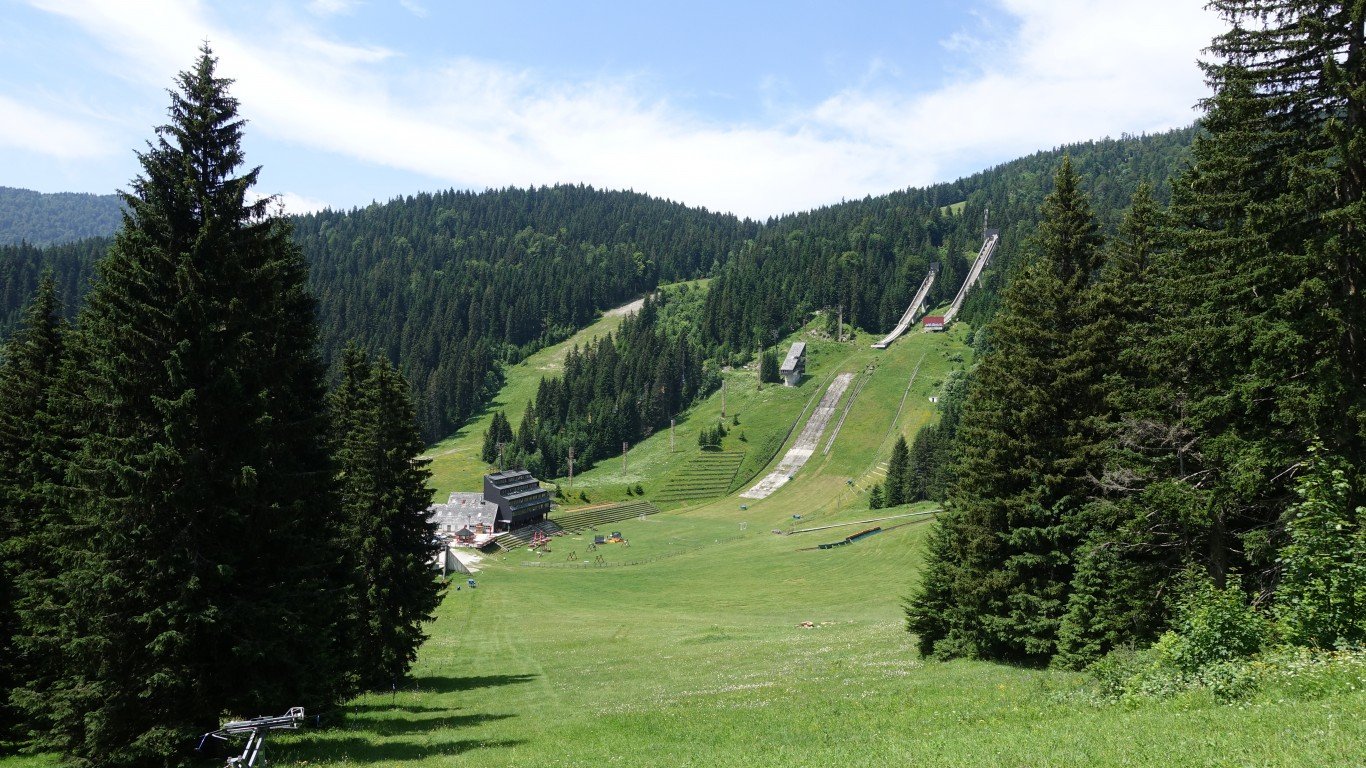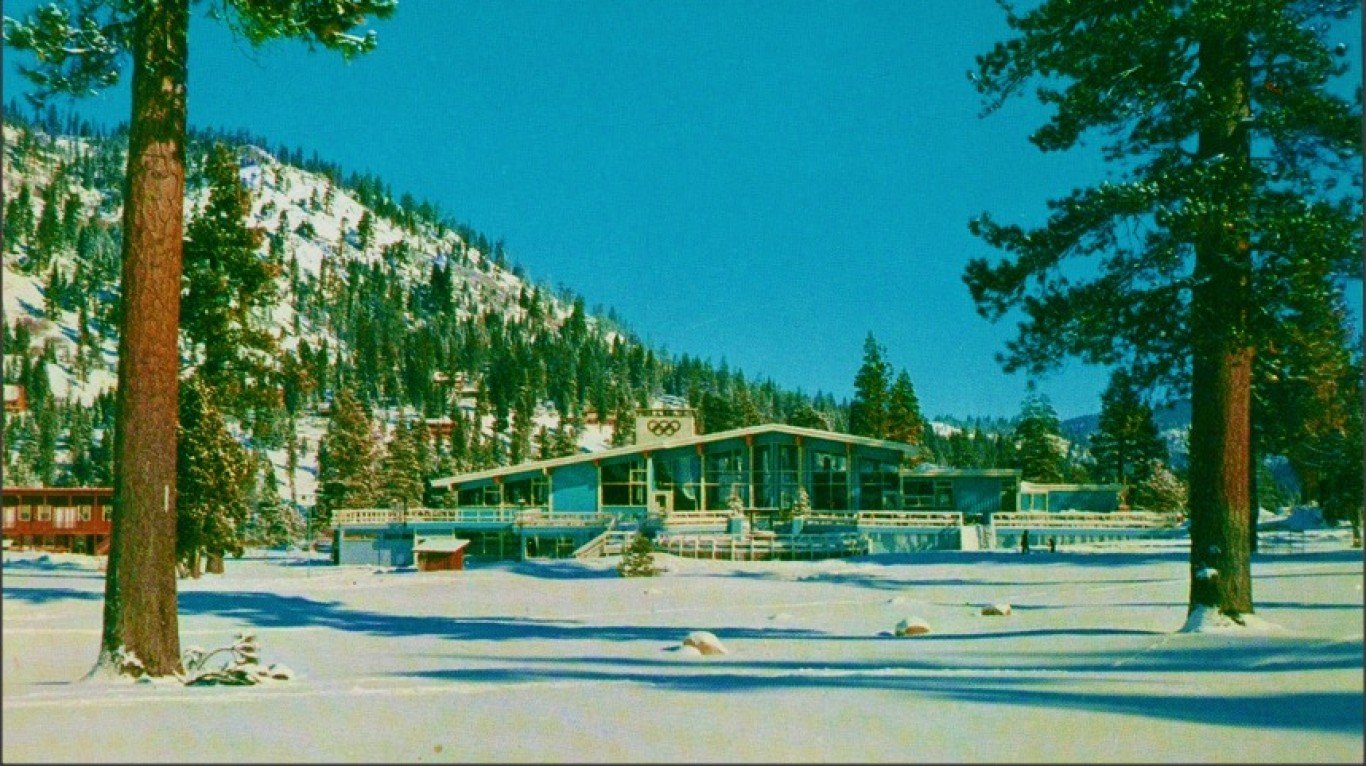Chamonix, France
> Suitability by 2050s in low-emission future: High Risk
> Suitability by 2050s in high-emission future: High Risk
> Suitability by 2080s in low-emission future: High Risk
> Suitability by 2080s in high-emission future: Non-Reliable
> Last Winter Olympics hosted: 1924
Chamonix, France, hosted the first Winter Olympics in 1924 as 16 teams and 260 athletes convened in the town in the French Alps. Finland’s Clas Thunberg dominated five speed-skating events, winning five medals, including three golds. The Canadian hockey team outscored the opposition, 122-3, enroute to the gold medal.
Grenoble, France
> Suitability by 2050s in low-emission future: High Risk
> Suitability by 2050s in high-emission future: High Risk
> Suitability by 2080s in low-emission future: High Risk
> Suitability by 2080s in high-emission future: Non-Reliable
> Last Winter Olympics hosted: 1968
The Winter Games were held in France for the second time in the politically volatile year of 1968 (the previous time was in 1924, when the first-ever Winter Games were held in Chamonix). Norway won the most medals, the first time a country other than the Soviet Union had accomplished that feat since the USSR started competing at the Winter Olympiad in 1956. Gender tests for women were introduced at the Grenoble event, as were doping monitors for men and women. French skier Jean-Claude Killy won the three Alpine events and Eugenio Monti helmed his two-man and four-man bobsleds to gold-medal glory for Italy.
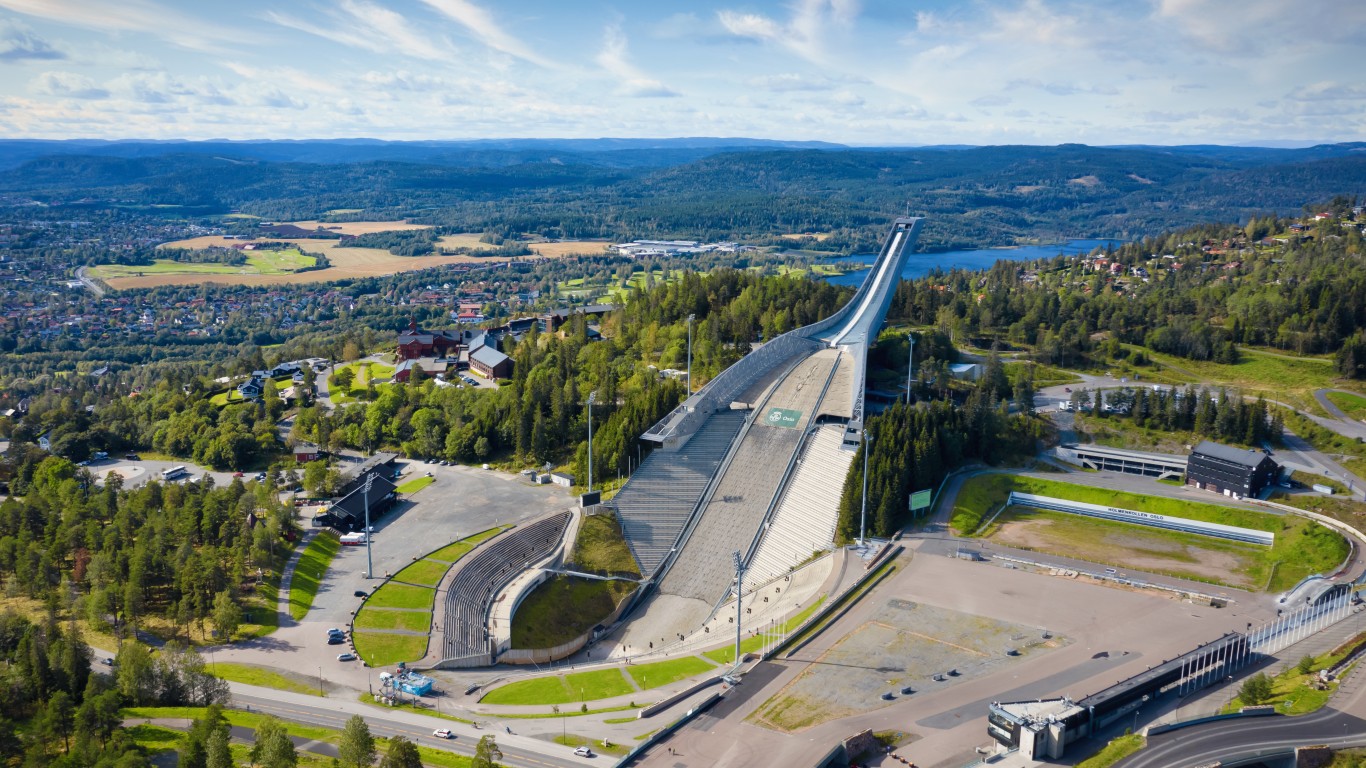
Oslo, Norway
> Suitability by 2050s in low-emission future: High Risk
> Suitability by 2050s in high-emission future: High Risk
> Suitability by 2080s in low-emission future: High Risk
> Suitability by 2080s in high-emission future: Non-Reliable
> Last Winter Olympics hosted: 1952
Norway, considered the birthplace of skiing, hosted its first Winter Olympics in 1952, and won the most medals that year with 16. Norwegian speed skater Hjalmar Andersen won three gold medals. Andrea Mead Lawrence of the United States took gold in the women’s giant slalom and slalom events.
Sarajevo, Yugoslavia (now Bosnia & Herzegovina)
> Suitability by 2050s in low-emission future: High Risk
> Suitability by 2050s in high-emission future: High Risk
> Suitability by 2080s in low-emission future: High Risk
> Suitability by 2080s in high-emission future: Non-Reliable
> Last Winter Olympics hosted: 1984
This was the only Olympiad held in the former Yugoslavia, eight years before the civil war tore apart the Balkan peninsula. The 1984 Winter Olympics in Sarajevo were famous for the performance of Marja-Liisa Kirvesmiemi-Hämäläinen from Finland. She won all three women’s cross-country skiing events. Karin Enke of East Germany captured four medals – two gold and two silver – in speed skating. Gunde Anders Svan of Sweden snagged four medals in cross-country skiing, two of them gold.
Squaw Valley, California
> Suitability by 2050s in low-emission future: High Risk
> Suitability by 2050s in high-emission future: Non-Reliable
> Suitability by 2080s in low-emission future: Non-Reliable
> Suitability by 2080s in high-emission future: Non-Reliable
> Last Winter Olympics hosted: 1960
The second Winter Olympic Games held in the United States (the first was in 1932 in Lake Placid) got off to an uncertain start. For the only time in Olympic competition, the bobsled event was not held because the organizing committee would not build a bobsled run since only nine nations agreed to take part. Finnish cross-country skier Veikko Hakulinen won individual medals in two events and anchored the Finns’ relay team to gold. The Soviet Union led in the overall medal count with 21. The Games also marked the first time the U.S. hockey team won the gold medal.
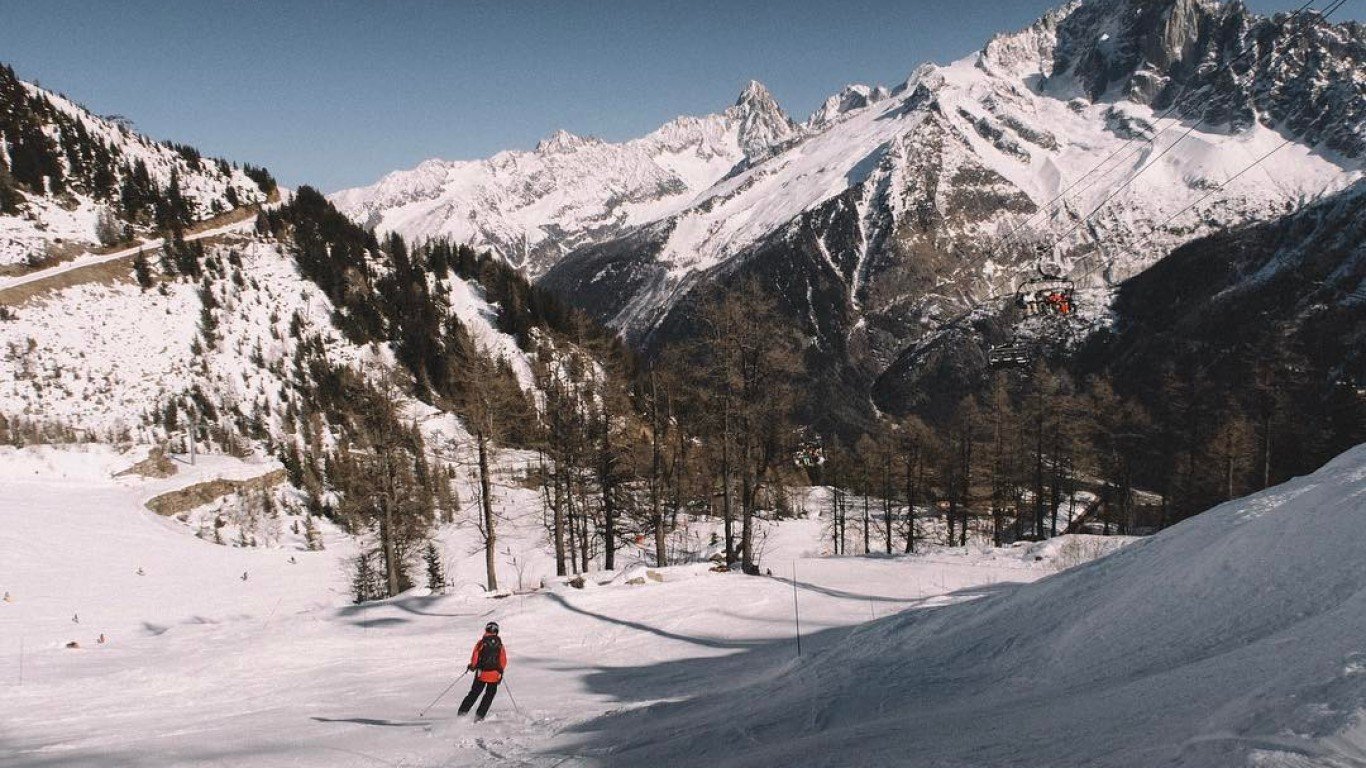


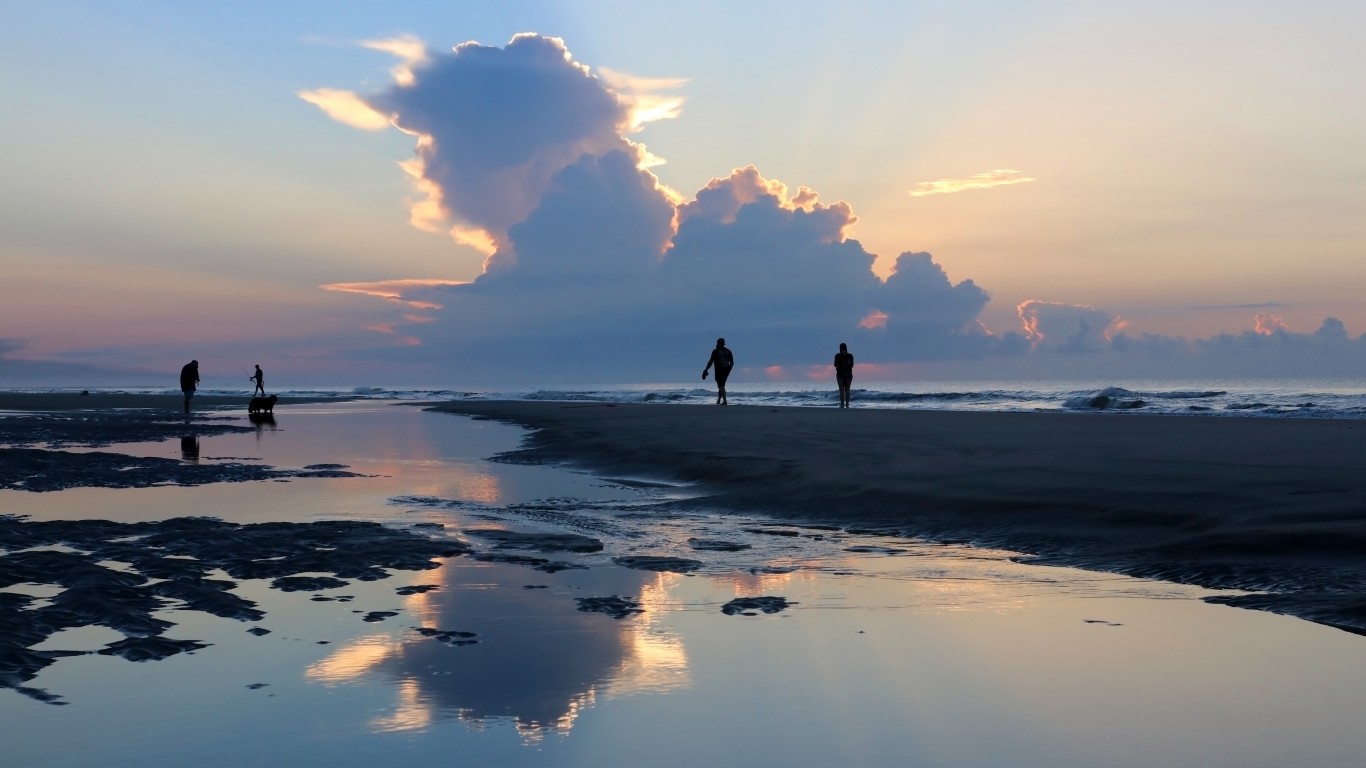 24/7 Tempo
24/7 Tempo